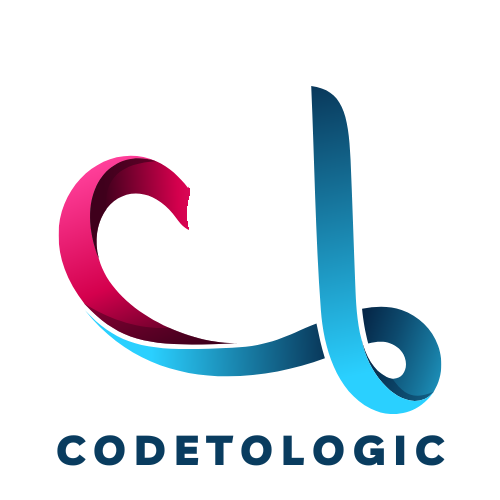27 Jul
You’ve undoubtedly heard about artificial intelligence, or AI, and how it’s transforming the marketing landscape. Although artificial intelligence (AI) may sound complicated, it’s really just clever technology that can make tasks easier and faster to do. Automation is one way artificial intelligence (AI) is changing marketing.
Marketing automation allows you to concentrate on the strategic and creative elements of your campaigns by handling repetitive duties like a helpful assistant. You may increase the effectiveness of your audience outreach, save time, and streamline your efforts with the use of AI and marketing automation.
Without getting into any technical or marketing speak, we’ll examine how AI and marketing automation interact in this post.
What is Marketing Automation?
Having a personal assistant that is always available is similar to having marketing automation. In order to manage tedious chores for your marketing campaigns, it makes use of technology and software. Sending emails, scheduling posts on social media, monitoring consumer behaviour, and other duties could fall under this category.
Reducing manual labour is the way to increase the effectiveness and efficiency of your marketing endeavours. You may free up your time by letting automation take care of repetitive activities, freeing you up to concentrate on producing excellent content and cultivating a loyal following.

The Role of AI in Marketing Automation:
The brain structure of artificial intelligence is comparable to that of marketing automation. It clarifies why people consider the automation to be “smart.” AI is capable of data analysis, knowledge-based decision-making, and learning from its experiences. Marketing automation is improved by AI in the following ways:
Personalisation: Data and customer behaviour can be analysed by artificial intelligence. It then uses this data to customise your marketing messages to each customer’s unique tastes. Your marketing becomes more relevant and engaging as a result.
AI-powered predictive analytics: it can forecast your clients’ most likely future behaviours. For instance, it can predict which products a customer might find intriguing based on past activity.
The brain structure of artificial intelligence is comparable to that of marketing automation. It clarifies why people consider the automation to be “smart.” AI is capable of data analysis, knowledge-based decision-making, and learning from its experiences. Marketing automation is improved by AI in the following ways:
Personalisation: Data and customer behaviour can be analysed by artificial intelligence. It then uses this data to customise your marketing messages to each customer’s unique tastes. Your marketing becomes more relevant and engaging as a result.
AI-powered predictive analytics: it can forecast your clients’ most likely future behaviours. For instance, it can predict which products a customer might find intriguing based on past activity.
The Benefits of AI in Marketing Automation:
Now that we understand how AI and marketing automation work together, let’s explore the benefits of this partnership:
Efficiency: With automation, routine tasks are handled more quickly and accurately, saving you time and reducing the chance of human errors.
Personalisation: AI helps you create more personalised marketing messages, which are more engaging for your audience.
Data-Driven Decisions: AI can analyse data in real-time, helping you make informed decisions based on the latest information.
Consistency: Automation ensures that your marketing efforts are consistent across all channels and touch points.
Cost-Effective: While there may be an initial investment in AI and automation tools, in the long run, they can save you money by improving efficiency and reducing the need for manual labour.
Scalability: As your business grows, automation can adapt and handle increased workloads without the need to hire more staff.

Challenges and Considerations:
While AI and marketing automation offer numerous benefits, there are some challenges and considerations to keep in mind:
Data Privacy: When you collect and use customer data, you must ensure it’s done in a way that respects privacy laws and regulations.
Content Quality: While AI can assist in content creation, it can’t replace the human touch when it comes to creativity and brand voice.
Customer Trust: You need to maintain the trust of your customers. Over-automation or impersonal messaging can harm your brand’s reputation.
Training and Integration: Implementing AI and automation may require training your team and integrating new tools into your existing systems.
Monitoring and Adjustment: Automation systems should be regularly monitored and adjusted to ensure they’re working effectively and meeting your goals.

The Human Touch:
While AI and marketing automation are incredibly valuable tools, they can’t replace the human touch in marketing. Building relationships with customers, understanding their needs, and creating a brand that resonates with them still requires human creativity and empathy. AI and automation are here to support you in your marketing efforts, making things smoother and more efficient.

In Conclusion:
AI and marketing automation are transforming the marketing landscape by streamlining processes, improving personalisation, and helping you make data-driven decisions. While they offer significant benefits, it’s crucial to use them wisely, respecting customer privacy, and maintaining the human touch that makes your brand unique. By leveraging the power of AI and automation, you can make your marketing efforts more efficient and effective, ultimately helping you connect with your audience in a more meaningful way.

